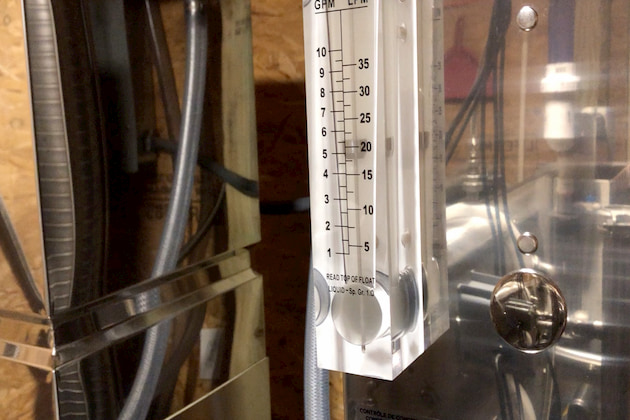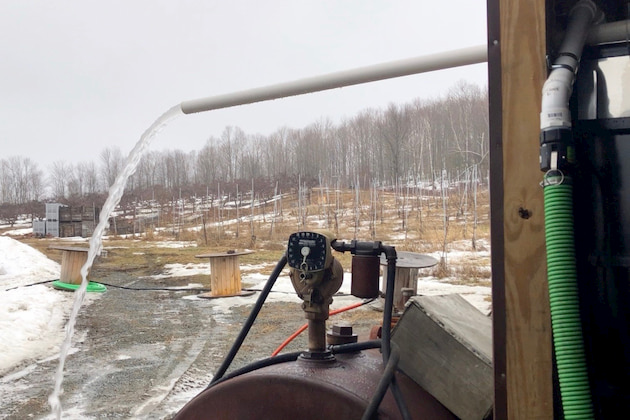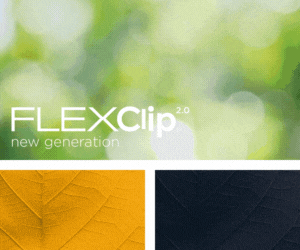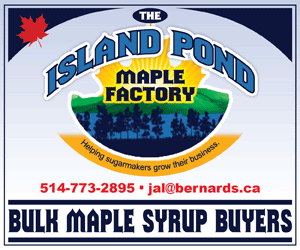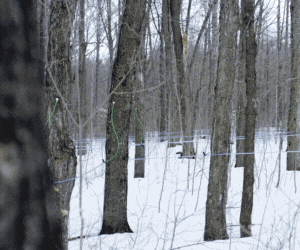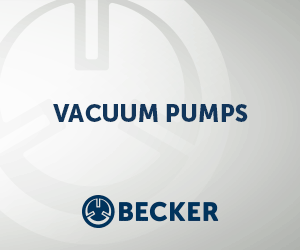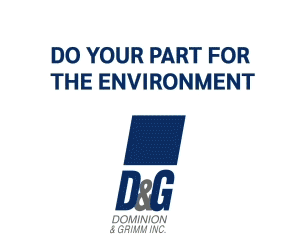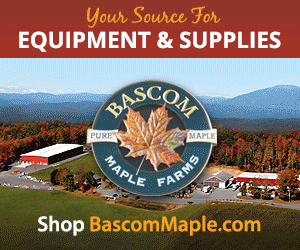Food Safety & Gov't Regulations
Wisconsin regulators target RO 'wastewater'
Permit will be required for RO discharge
By STAN MADDUX | FEBRUARY 7, 2020
MADISON, Wis.—The discharge water from reverse osmosis machines maple syrup makers use in Wisconsin will have to pass a test for them to keep making liquid gold.
A proposal requiring sugarmakers to obtain a state-issued permit for RO discharge will be reviewed for possible revisions before taking effect in February of 2021, said Michelle Balk, basin supervisor for the Wisconsin Department of Natural Resources in Spooner who is involved with the DNR’s waste water program for the northwest part of the state.
It’s the solvents in the water used to clean reverse osmosis machines the DNR wants to make sure doesn’t pose a threat to groundwater or lakes and streams when released onto the ground.
A public comment period on the proposal ends February 13.
If passed, it would be the first state in the nation to regulate RO water. Vermont regulators are in the second year of studying sugarhouse discharge, including wash water from pan cleaner. But no regulations are in effect in that state yet.
Balk said Badger State producers will have to send a sample of their waste water with their permit application.
Permits in Wisconsin will be awarded on samples found in compliance with DNR’s waste water discharge requirements, she said.
Balk said the DNR will work with producers failing the test on getting the contaminants in their waste water below the threshold.
“We’re not terribly concerned about it but we do want to make sure it’s taken care of in a proper way and it’s not getting into any areas it’s not supposed to,” Balk said.
Balk said permits will have to be renewed every five-years.
The requirement stems from the Wisconsin Department of Agriculture, Trade and Consumer Protection.
WDATP added waste water from maple syrup production into a category of discharges already requiring a low-impact permit like water from washing vehicles and swimming pools.
Balk said the DNR understands water removed from sap through reverse osmosis is pure.
It’s the solvents added to water used in cleaning filters and other parts of the machine the state wants to make sure are within acceptable levels.
“We’re concerned about that stuff,” she said.
Balk said there is no permit fee.
Joe Polak, a third-generation sugarmaker of up to 6,000 gallons of maple syrup annually, said he hasn’t heard of any rumblings about the proposal from other tree tappers.
He just recently heard about it and feels many other producers are not aware of what’s coming down the pike.
Polak said meeting the requirements will be inconvenient but felt the guidelines are reasonable.
“I think they’re trying to work with the small businesses. Sounds that way to me,” he said.
He owns Maple Hollow in Merrill in the northern part of the state. His grandfather, Charles, founded the operation in 1889. His son, John, and grandson, Joe, are continuing on with the family tradition.
Polak said his reverse osmosis machine gets about 75-percent of the water out of the sap from his 15,000 to 20,000 trees at a rate of up to 4,800 gallons per hour.
He said he tries to use mostly citric acid in the water after it’s been taken out of the sap and later run back through the machine for cleaning.
Citric acid is milder than some of the more aggressive solvents used in the industry.
Polak said he produces 1,000 to 2,000 gallons of waste water daily from cleaning during the season.
“Hopefully, the chemicals we are using are acceptable but we’ll find out,” he said.















